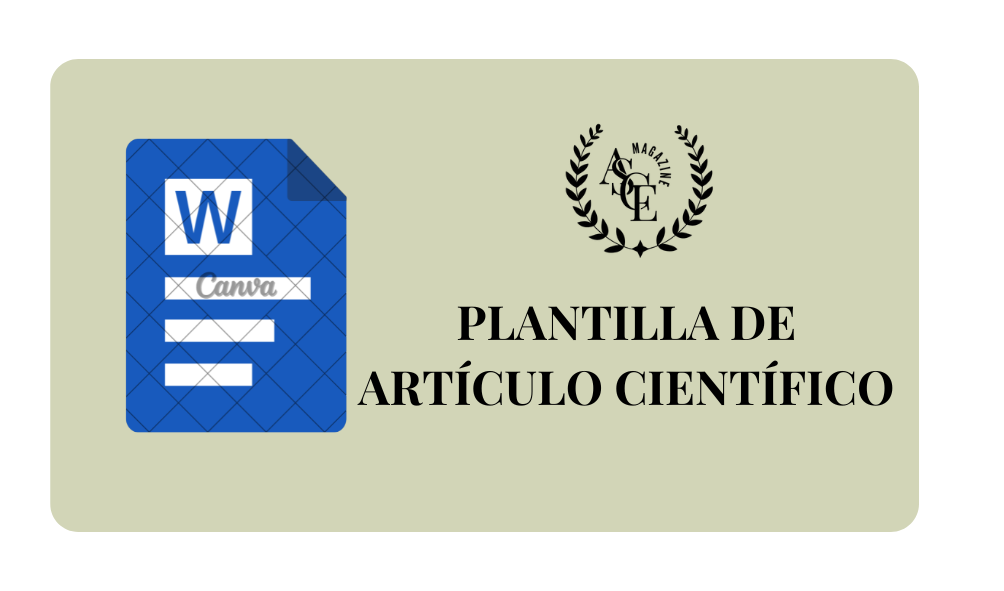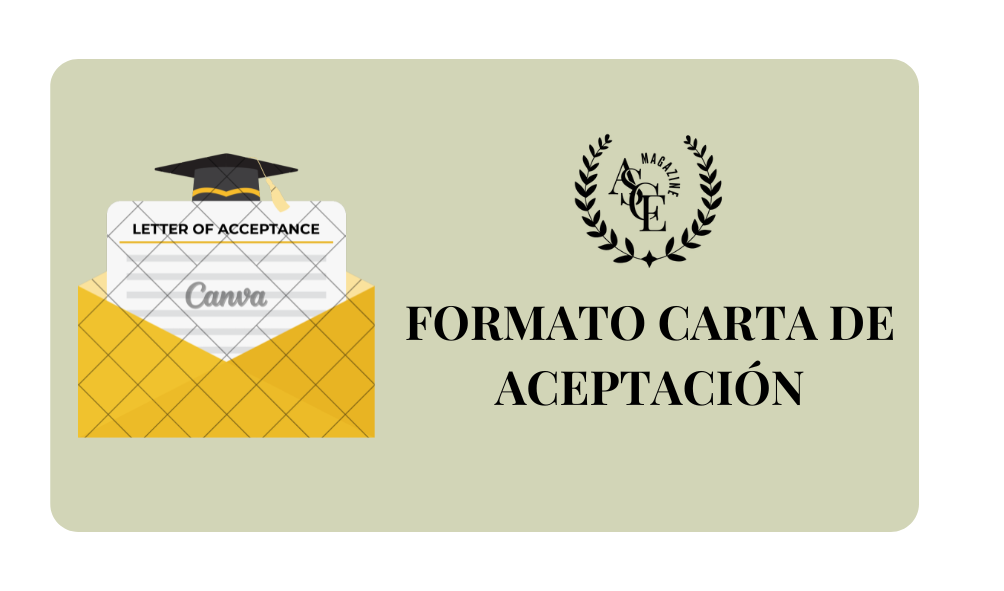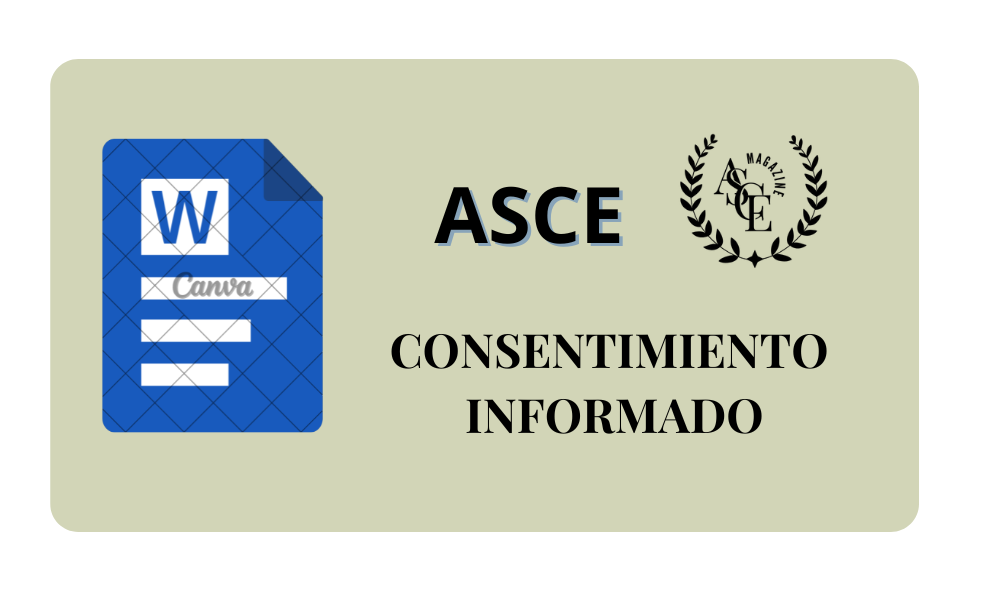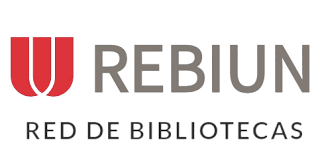Gamificación Transversal en el Currículo Escolar: Un Estudio de su Efecto en el Desarrollo de Habilidades sobre el medio ambiente y Creatividad en Estudiantes.
DOI:
https://doi.org/10.70577/ASCE/454.477/2025Palabras clave:
Tecnología Educativa, Analítica del Aprendizaje, Personalización del Aprendizaje, Cálculo Diferencial, Educación Superior, Retroalimentación Automatizada, Rutas de Aprendizaje Adaptativas.Resumen
La finalidad de esta investigación fue examinar el efecto de la implementación de la gamificación transversal en el currículo escolar en el fomento de competencias vinculadas al medio ambiente y la creatividad en estudiantes de nivel básico. Con base en una propuesta pedagógica contemporánea, se desarrolló una secuencia didáctica que integra dinámicas lúdicas en diversas disciplinas, poniendo especial énfasis en temas ecológicos y expresivos, con el objetivo de fomentar tanto el aprendizaje significativo como el fomento de la conciencia ambiental. El enfoque metodológico adoptado fue cuasi-experimental, implementando un diseño pretest-postest y un grupo control, y se implementó en instituciones educativas urbanas durante un periodo de doce semanas. La población seleccionada comprendió 120 alumnos de quinto a séptimo grado. Los instrumentos empleados para la recolección de datos comprendieron rúbricas de evaluación creativa, encuestas de percepción estudiantil y pruebas de conocimiento medioambiental, los cuales fueron validados a través de un análisis de consistencia interna (α > 0.85) y una revisión por expertos. Los descubrimientos sugieren que el conjunto experimental evidenció mejoras estadísticamente significativas (p < 0.01) en los indicadores de pensamiento creativo, resolución de problemas y comprensión del impacto ambiental local, en contraste con el conjunto de control. Además, los estudiantes manifestaron un incremento en la motivación, una participación más intensa y una sensación de pertenencia al proceso de aprendizaje. Los hallazgos indican que la implementación cruzada de la gamificación no sólo optimiza las competencias cognitivas y actitudinales, sino que también fomenta el desarrollo sostenible desde el contexto educativo. Por lo tanto, se postula que esta estrategia representa un instrumento pedagógico eficaz y reproducible, capaz de dirigir el currículo hacia enfoques de enseñanza más integradores, lúdicos y responsables en términos de medio ambiente y creatividad.
Descargas
Citas
Aguilar Tinoco, R. J., Carvallo Lobato, M. F., Román Camacho, D. E., Liberio Anzules, A. M., Hernández Centeno, J. A., Duran Fajardo, T. B., & Bernal Parraga, A. P. (2024). El impacto del Diseño Universal para el Aprendizaje (DUA) en la enseñanza de ciencias naturales: Un enfoque inclusivo y personalizado. Ciencia Latina Revista Científica Multidisciplinar, 8(5), 2162–2178. https://doi.org/10.37811/cl_rcm.v8i5.13682 DOI: https://doi.org/10.37811/cl_rcm.v8i5.13682
Almeida, C., Kalinowski, M., Uchoa, A., & Feijo, B. (2023). Negative effects of gamification in education software: A systematic mapping and practitioner perceptions. arXiv preprint. https://doi.org/10.48550/arXiv.2305.08346 DOI: https://doi.org/10.1016/j.infsof.2022.107142
Almeida, F., Ferreira, J., & Rosa, M. J. (2023). The effect of novelty and gamification fatigue in educational environments: A longitudinal perspective. Computers in Human Behavior Reports, 11, 100171. https://doi.org/10.1016/j.chbr.2023.100171
Alsadoon, E., Alkhawajah, A., & Bin Suhaim, A. (2022). Effects of a gamified learning environment on students’ achievement, motivations, and satisfaction. Heliyon, 8(9), e10249. https://doi.org/10.1016/j.heliyon.2022.e10249 DOI: https://doi.org/10.1016/j.heliyon.2022.e10249
Anderson, C. A., & Dill, K. E. (2000). Video games and aggressive thoughts, feelings, and behavior in the laboratory and in life. Journal of Personality and Social Psychology, 78(4), 772–790. https://doi.org/10.1037/0022-3514.78.4.772 DOI: https://doi.org/10.1037//0022-3514.78.4.772
Ausubel, D. P. (2000). The acquisition and retention of knowledge: A cognitive view. Springer. DOI: https://doi.org/10.1007/978-94-015-9454-7
Bernal Párraga, A. P., Cadena Morales, A. G., Cadena Morales, J. A., Mejía Quiñonez, J. L., Alcívar Vélez, V. E., Pinargote Carreño, V. G., & Tello Mayorga, L. E. (2024). Impacto de las plataformas de gamificación en la enseñanza: Un análisis de su efectividad educativa. Ciencia Latina Revista Científica Multidisciplinar, 8(5), 2851–2867. https://doi.org/10.37811/cl_rcm.v8i5.13742 DOI: https://doi.org/10.37811/cl_rcm.v8i5.13742
Bernal Párraga, A. P., Haro Cedeño, E. L., Reyes Amores, C. G., Arequipa Molina, A. D., Zamora Batioja, I. J., Sandoval Lloacana, M. Y., & Campoverde Duran, V. D. R. (2024). La gamificación como estrategia pedagógica en la educación matemática. Ciencia Latina Revista Científica Multidisciplinar, 8(3), 6435–6465. https://doi.org/10.37811/cl_rcm.v8i3.11834 DOI: https://doi.org/10.37811/cl_rcm.v8i3.11834
Bernal Párraga, A. P., Ibarvo Arias, J. A., Amaguaña Cotacachi, E. J., Gloria Aracely, C. T., Constante Olmedo, D. F., Valarezo Espinosa, G. H., & Poveda Gómez, J. A. (2025). Innovación metodológica en la enseñanza de las ciencias naturales: Integración de realidad aumentada y aprendizaje basado en proyectos para potenciar la comprensión científica en educación básica. Revista Científica De Salud Y Desarrollo Humano, 6(2), 488–513. https://doi.org/10.61368/r.s.d.h.v6i2.613 DOI: https://doi.org/10.61368/r.s.d.h.v6i2.613
Bernal Párraga, A. P., Jaramillo Rodríguez, V. A., Correa Pardo, Y. C., Andrade Avilés, W. A., Cruz Gaibor, W. A., & Constante Olmedo, D. F. (2024). Metodologías activas innovadoras de aprendizaje aplicadas al medioambiente en edades tempranas desde el área de ciencias naturales. Ciencia Latina Revista Científica Multidisciplinar, 8(4), 2892–2916. https://doi.org/10.37811/cl_rcm.v8i4.12536 DOI: https://doi.org/10.37811/cl_rcm.v8i4.12536
Bernal Párraga, A. P., Naguas Nagua, J. A., Villarreal Bonifaz, M. M., Santillán Sevillano, N. D. C., Reyes Ordoñez, J. P., Carrillo Baldeón, V. P., & Macas Pacheco, C. (2025). Gamificación como estrategia innovadora para promover el aprendizaje significativo en estudios sociales. Ciencia Latina Revista Científica Multidisciplinar, 9(1), 1044–1061. https://doi.org/10.37811/cl_rcm.v9i1.15860 DOI: https://doi.org/10.37811/cl_rcm.v9i1.15860
Bernal Párraga, A. P., Orozco Maldonado, M. E., Salinas Rivera, I. K., Gaibor Dávila, A. E., Gaibor Dávila, V. M., Gaibor Dávila, R. S., & García Monar, K. R. (2024). Análisis de recursos digitales para el aprendizaje en línea para el área de ciencias naturales. Ciencia Latina Revista Científica Multidisciplinar, 8(4), 9921–9938. https://doi.org/10.37811/cl_rcm.v8i4.13141 DOI: https://doi.org/10.37811/cl_rcm.v8i4.13141
Bernal, A., & Guarda, T. (2020). La gestión de la información es factor determinante para elaborar estrategias innovadoras en política educativa pública. Iberian Journal of Information Systems and Technologies, (E27), 35–48.
Campos, S., Rivera, M., & López, G. (2023). Limitations in transversal gamification applications: A review. International Journal of Educational Technology in Higher Education, 20(1), 45–60.
Deci, E. L., & Ryan, R. M. (2000). The "what" and "why" of goal pursuits: Human needs and the self‑determination of behavior. Psychological Inquiry, 11(4), 227–268. DOI: https://doi.org/10.1207/S15327965PLI1104_01
De-Marcos, L., Domínguez, A., Saenz-De-Navarrete, J., & Pagés, C. (2014). An empirical study comparing gamification and social networking on e-learning. Computers & Education, 75, 82–91. https://doi.org/10.1016/j.compedu.2014.01.012 DOI: https://doi.org/10.1016/j.compedu.2014.01.012
Deterding, S., Dixon, D., Khaled, R., & Nacke, L. (2011). From game design elements to gamefulness: Defining gamification. Proceedings of the 15th International Academic MindTrek Conference, 9–15. https://doi.org/10.1145/2181037.2181040 DOI: https://doi.org/10.1145/2181037.2181040
Domínguez, A., Saenz‑de‑Navarrete, J., & de-Marcos, L. (2022). Gamification in cross‑curricular contexts: A systematic review. Computers in Human Behavior, 123, 106907. https://doi.org/10.1016/j.chb.2021.106907
García Carrillo, M. de J., Bernal Párraga, A. P., Alexis Cruz Gaibor, W., Cruz Roca, A. B., Ruiz Vasco, D. E., Montaño Ordóñez, J. A., & Illescas Zaruma, M. S. (2024). Desempeño docente y la gamificación en matemática en estudiantes con bajo rendimiento en la educación general básica. Ciencia Latina Revista Científica Multidisciplinar, 8(4), 7509–7531. https://doi.org/10.37811/cl_rcm.v8i4.12919 DOI: https://doi.org/10.37811/cl_rcm.v8i4.12919
García-Gasca, D., & González-Pérez, I. (2023). Gamification as a teaching method to improve performance and motivation in tertiary education during COVID-19: A research study from Mexico. Education Sciences, 13(1), 49. https://doi.org/10.3390/educsci13010049 DOI: https://doi.org/10.3390/educsci12010049
Gee, J. P. (2007). What video games have to teach us about learning and literacy. Palgrave Macmillan.
González, C., Ramírez, I., & Ochoa, H. (2023). Impacto de la gamificación en el aprendizaje significativo ambiental. Revista Colombiana de Educación, 86, 59–78. https://doi.org/10.17227/rce.num86-12004
González, M., Vargas, C., & Herrera, P. (2023). Environmental awareness through game‑based learning. Journal of Environmental Education, 54(2), 112–129. https://doi.org/10.1080/00958964.2023.2173014
Hamari, J., Shernoff, D. J., Rowe, E., Coller, B., Asbell-Clarke, J., & Edwards, T. (2021). Challenging games help students learn: An empirical study on engagement, flow and immersion in game-based learning. Computers in Human Behavior, 54, 170–179. https://doi.org/10.1016/j.chb.2021.106789 DOI: https://doi.org/10.1016/j.chb.2015.07.045
Hernández, R., & Bravo, A. (2024). Integración de dinámicas de juego y sostenibilidad curricular. Revista Iberoamericana de Educación, 88(2), 243–260. https://doi.org/10.35362/rie8826250
Jaramillo‑Mediavilla, L., Basantes‑Andrade, A., Cabezas‑González, M., & Casillas‑Martín, S. (2024). Impact of gamification on motivation and academic performance: A systematic review. Education Sciences, 14(6), 639. https://doi.org/10.3390/educsci14060639 DOI: https://doi.org/10.3390/educsci14060639
Jaramillo-Mediavilla, M. J., Martínez-Abad, F., & Hernández-Ramos, J. P. (2024). Longitudinal evaluation of gamified learning environments in primary education: The mediating role of digital competence. Education and Information Technologies, 29(1), 233–254. https://doi.org/10.1007/s10639-023-11795-1
Johnson, M., & Smith, A. (2023). Digital divide and its impact on educational technology implementation: An analysis of teacher and student readiness. Journal of Educational Computing Research, 61(4), 897–920. https://doi.org/10.1177/07356331221100235
Kramar, U., & Knez, M. (2025). Gamified Learning for Sustainability: An Innovative Approach to Enhance Hydrogen Literacy and Environmental Awareness Through Simulation-Based Education. Sustainability, 17(6), 2694. https://doi.org/10.3390/su17062694 DOI: https://doi.org/10.3390/su17062694
Keränen, A., Mäkitalo, K., & Vartiainen, H. (2025). Gamified environmental education: A systematic review of design and impact. Environmental Education Research, 31(2), 145–165. https://doi.org/10.1080/13504622.2024.1999921
Klock, A. C. T., Saltenave Santana, B., & Hamari, J. (2023). Ethical challenges in gamified education research and development: An umbrella review and potential directions. arXiv preprint. https://arxiv.org/abs/2309.14918 DOI: https://doi.org/10.1007/978-3-031-31949-5_3
Kolb, D. A. (1984). Experiential learning: Experience as the source of learning and development. Prentice-Hall.
Lampropoulos, G., & Sidiropoulos, A. (2024). Impact of gamification on students’ learning outcomes and academic performance: A longitudinal study comparing online, traditional, and gamified learning. Education Sciences, 14(4), 367. https://doi.org/10.3390/educsci14040367 DOI: https://doi.org/10.3390/educsci14040367
Latre‑Navarro, L., Quintas‑Hijós, A., & Sáez‑Bondía, M. J. (2024). Analysis of Human Anatomy Education: The Effects of a Gamified Creativity‑Based Teaching Method on Students’ Basic Psychological Needs Frustration. Journal of Science Education and Technology, 34(2), 252–266. https://doi.org/10.1007/s10956-024-10178-w
López, A. M., & Fernández, B. R. (2022). Desarrollo de la creatividad mediante proyectos gamificados. Revista Electrónica de Investigación Educativa, 24(2), 101–120. https://doi.org/10.24320/redie.2022.24.e02.1302
López, E., Martínez, J., & Pérez, A. (2022). Gamified role‑playing in social sciences: Effects on critical thinking and ecological awareness. Education Sciences, 12(3), 210. https://doi.org/10.3390/educsci12030210 DOI: https://doi.org/10.3390/educsci12030210
Martín, C., & Pérez, A. (2023). Evaluating the long-term impact of gamified curricula in elementary education: Challenges and outcomes. Teaching and Teacher Education, 127, 104060. https://doi.org/10.1016/j.tate.2023.104060
Martín, J., & Pérez, L. (2023). Monitoring post-intervention learning outcomes in gamified educational programs: A challenge for follow-up design. Frontiers in Education, 8, 1187695. https://doi.org/10.3389/feduc.2023.1187695
Mishra, P., & Koehler, M. J. (2006). Technological pedagogical content knowledge: A framework for teacher knowledge. Teachers College Record, 108(6), 1017–1054. https://doi.org/10.1111/j.1467-9620.2006.00684.x DOI: https://doi.org/10.1177/016146810610800610
Mogavi, R. H., Guo, B., Zhang, Y., Haq, E., Hui, P., & Ma, X. (2022). When gamification spoils your learning: A qualitative case study of gamification misuse in a language-learning app. arXiv preprint. https://doi.org/10.48550/arXiv.2203.16175
Moreno, M., & Castillo, R. (2023). Game‑based narrative strategies in primary education: Impacts on creativity. Australasian Journal of Educational Technology, 39(1), 45–63. https://doi.org/10.14742/ajet.7571 DOI: https://doi.org/10.14742/ajet.9082
Orden Guamán, C. R., Salinas Rivera, I. K., Paredes Montesdeoca, D. G., Fernández García, D. M., Silva Carrillo, A. G., Bonete León, C. L., & Bernal Párraga, A. P. (2024). Gamificación versus otras estrategias pedagógicas: Un análisis comparativo de su efectividad en el aprendizaje y la motivación de estudiantes de educación básica. Ciencia Latina Revista Científica Multidisciplinar, 8(4), 9939–9957. https://doi.org/10.37811/cl_rcm.v8i4.13142 DOI: https://doi.org/10.37811/cl_rcm.v8i4.13142
Pegalajar‑Palomino, M. C., & Martínez‑Valdivia, E. (2024). ICT-mediated gamification in education degrees: A commitment to sustainability. Journal of Technology and Science Education, 14(3), 1–18. https://doi.org/10.3926/jotse.2624 DOI: https://doi.org/10.3926/jotse.2624
Pérez, L., & Salinas, J. (2023). Efectos de la gamificación ambiental en primaria. Journal of Educational Research, 116(2), 123–135. https://doi.org/10.1080/00220671.2023.2190842
PLOS ONE (2024). The impact of digital educational games on student’s motivation for learning. PLOS ONE, 19(1), e0294350. https://doi.org/10.1371/journal.pone.0294350 DOI: https://doi.org/10.1371/journal.pone.0294350
Prachagool, V., & Nuangchalerm, P. (2023). AI‑driven learning analytics in STEM education: An integrated model. International Journal of Educational Technology, 18(2), 45–59. https://doi.org/10.1186/s41239-023-00421-1 DOI: https://doi.org/10.33830/ijrse.v5i2.1596
Ramírez Ruiz, J. J., Vargas Sánchez, A. D., & Boude Figueredo, O. R. (2024). Impact of gamification on school engagement: a systematic review. Frontiers in Education, 9, 1466926. https://doi.org/10.3389/feduc.2024.1466926 DOI: https://doi.org/10.3389/feduc.2024.1466926
Rodrigues, L., Pereira, F. D., Toda, A. M., Palomino, P. T., Pessoa, M., Carvalho, L. S. G., Fernandes, D., Oliveira, E. H., Cristea, A. I., & Isotani, S. (2022). Gamification suffers from the novelty effect but benefits from the familiarization effect: Findings from a longitudinal study. International Journal of Educational Technology in Higher Education, 19(1), Article 13. https://doi.org/10.1186/s41239-021-00314-6 DOI: https://doi.org/10.1186/s41239-021-00314-6
Rojas, S., & Suárez, M. (2024). Gamification for environmental education: A Latin American perspective. Cultural Studies of Science Education, 19(1), 75–94. https://doi.org/10.1007/s11422-023-10120-x
Ryan, R. M., & Deci, E. L. (2000). Intrinsic and extrinsic motivations: Classic definitions and new directions. Contemporary Educational Psychology, 25(1), 54–67. https://doi.org/10.1006/ceps.1999.1020 DOI: https://doi.org/10.1006/ceps.1999.1020
Saenboonsong, S., & Poonsawad, A. (2024). The development of students’ creative problem-solving skills through learning model in gamification environment together with cartoon animation media. Journal of Education and Learning, 13(2), 138–148. https://doi.org/10.5539/jel.v13n2p138 DOI: https://doi.org/10.5539/jel.v13n2p138
Shadish, W. R., Cook, T. D., & Campbell, D. T. (2002). Experimental and quasi‑experimental designs for generalized causal inference. Houghton Mifflin.
Shute, V. J., & Ventura, M. (2013). Stealth assessment: Measuring and supporting learning in video games. MIT Press. DOI: https://doi.org/10.7551/mitpress/9589.001.0001
Silva, T. A., Lima, F. J., & Pereira, R. A. (2024). Gamification and environmental awareness: A pedagogical intervention in middle school. Revista Brasileira de Educação Ambiental, 29(1), 78–95. https://doi.org/10.34024/revbea.2024.v29.14325
SleJournal. (2024). Gamification, collaborative learning and transversal competences. Smart Learning Environments, 11(1), 12. https://doi.org/10.1186/s40561-024-00361-2 DOI: https://doi.org/10.1186/s40561-024-00361-2
Smiderle, R., Rigo, S. J., Marques, L. B., Coelho, J. A. P. de M., & Jaques, P. A. (2020). The impact of gamification on students’ learning, engagement and behavior based on their personality traits. Smart Learning Environments, 7(1), 3. https://doi.org/10.1186/s40561-019-0098-x DOI: https://doi.org/10.1186/s40561-019-0098-x
Springer (2024). Analysis of human anatomy education: Effects of a gamified creativity-based teaching method. Journal of Science Education and Technology, 34(2), 252–266. https://doi.org/10.1007/s10956-024-10178-w DOI: https://doi.org/10.1007/s10956-024-10178-w
Toda, A. M., Isotani, S., & Bittencourt, I. I. (2019). Pedagogical agents for personalized learning in virtual learning environments: A systematic review. Journal of Educational Technology & Society, 22(3), 104–118.
Toda, A. M., Klock, A. C. T., Oliveira, W., Palomino, P. T., Rodrigues, L., Shi, L., & Isotani, S. (2020). Analysing gamification elements in educational environments using an existing gamification taxonomy. Smart Learning Environments, 7, 1–21. https://doi.org/10.1186/s40561-019-0098-x DOI: https://doi.org/10.1186/s40561-019-0106-1
Torres Illescas, V., Villacrés Prieto, P., Román Cabrera, J., & Bernal Párraga, A. (2024). Charting the path of reading development: A study on the importance and effective strategies for reading in early ages based on technology. In O. Gervasi, B. Murgante, C. Garau, D. Taniar, A. M. A. C. Rocha, & M. N. Faginas Lago (Eds.), Computational Science and Its Applications – ICCSA 2024 Workshops. Lecture Notes in Computer Science, 14820. Springer. https://doi.org/10.1007/978-3-031-65285-1_2 DOI: https://doi.org/10.1007/978-3-031-65285-1_2
Vallejo, D., & Gómez, F. (2024). Cross‑curricular integration of gamification: Spanish case study. European Journal of Educational Psychology, 37(2), 145–160. https://doi.org/10.30552/ejep.2024.0037
Vygotsky, L. S. (1978). Mind in society: The development of higher psychological processes. Harvard University Press.
Zhang, L. (2022). Gamification and students’ creativity: Mediating effect of learning immersion. In Proceedings of EIMSS 2022 (pp. 917–926). Springer. https://doi.org/10.2991/978-94-6463-024-4_96 DOI: https://doi.org/10.2991/978-94-6463-024-4_96
Descargas
Publicado
Cómo citar
Número
Sección
Licencia
Derechos de autor 2025 Sandra Elizabeth Molina Moreno, Sara Michely López Cornejo, Santiago Lizandro Vera Chávez, Blanca Guillermina Narváez Muñoz, Jacqueline Thalía Torres Morocho

Esta obra está bajo una licencia internacional Creative Commons Atribución-NoComercial-SinDerivadas 4.0.
Eres libre de:
- Compartir : copiar y redistribuir el material en cualquier medio o formato
- Adaptar : remezclar, transformar y desarrollar el material
- El licenciante no puede revocar estas libertades siempre y cuando usted cumpla con los términos de la licencia.
En los siguientes términos:
- Atribución : Debe otorgar el crédito correspondiente , proporcionar un enlace a la licencia e indicar si se realizaron cambios . Puede hacerlo de cualquier manera razonable, pero no de ninguna manera que sugiera que el licenciante lo respalda a usted o a su uso.
- No comercial : no puede utilizar el material con fines comerciales .
- CompartirIgual — Si remezcla, transforma o construye sobre el material, debe distribuir sus contribuciones bajo la misma licencia que el original.
- Sin restricciones adicionales : no puede aplicar términos legales ni medidas tecnológicas que restrinjan legalmente a otros hacer algo que la licencia permite.

























